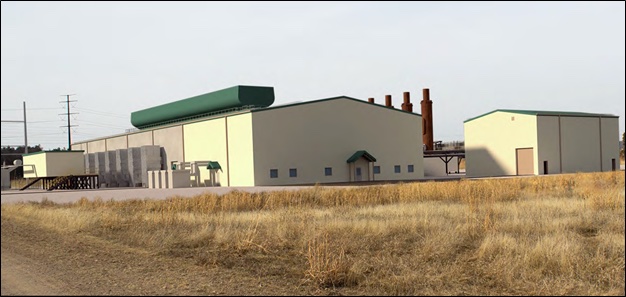The plant would increase greenhouse gas emissions in Wisconsin by 491,000 tons every year.
The science is clear: Now is the time to end our reliance on fossil fuels in order to avoid the worst impacts of climate change. And with Gov. Tony Evers’ Executive Order #38 committing the state to 100% clean electricity consumption by 2050, there was reason to hope the days of irresponsible fossil fuel development in Wisconsin were behind us. So, when WEC Energy Group subsidiaries WPSC and WEPCO proposed to build a new, 128-MW reciprocating internal combustion engine (RICE) gas-fired generation facility along the Wisconsin River in Kronenwetter, Clean Wisconsin intervened in the Public Service Commission (PSC) proceeding to ensure rules designed to protect the public and the environment were appropriately applied. The utilities claim they need the fossil gas plant to bolster reliability as more renewables are added to grid, but Wisconsin’s renewable generation is a fraction of the total we need to meet climate goals.
First, Clean Wisconsin submitted comments on the project’s Environmental Assessment document, arguing that the PSC should have completed a more thorough environmental review to fully account for the serious impacts of the project, particularly from greenhouse gas emissions. During the evidentiary phase of the proceeding, we submitted testimony from experts on the environmental impacts and to critique the modeling relied upon by the utilities in their applications. In his testimony, Clean Wisconsin’s Staff Scientist Dr. Paul Mathewson explained that the RICE project would increase greenhouse gas emissions in Wisconsin by 491,000 tons every year. And, outside consultant Dr. Ezra Hausman explained why the $171 million project is not justified by capacity needs, a point solidified in December 2021 when WEC announced plans to purchase an existing gas facility with almost twice the capacity of the RICE units.
Clean Wisconsin’s legal team, along with other environmental, renewable energy, and consumer advocates, argued against the project in a hearing and several rounds of briefing. We pointed out that the utilities’ proposal fails to meet the legal criteria of Wisconsin’s Energy Priorities Law, which grants preference to renewable energy projects over fossil fueled ones, violates other applicable statutes, and is inconsistent with the state’s climate commitments and WEC’s own emission reduction goals.
Despite strong arguments against approval, the PSC, in a 2-1 decision—pending a written order—granted the application to allow construction of the plant. This unfortunate decision is not in line with climate policies set by Evers or President Biden, or the applicable legal requirements for construction of such a plant. Instead of making utilities invest in clean renewable power generation and associated storage, the PSC apparently wants to allow WEC to continue to waste ratepayer money on dirty sources of electrical generation.
As of May 4, Clean Wisconsin is waiting for the PSC’s written order, when we will consider potential challenges to the decision.

